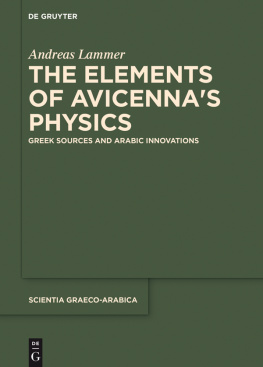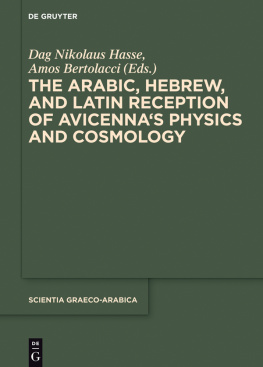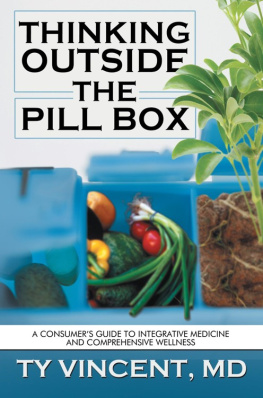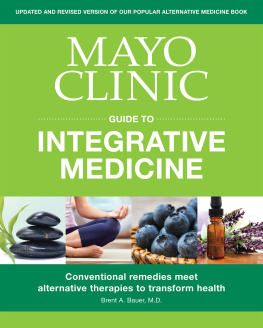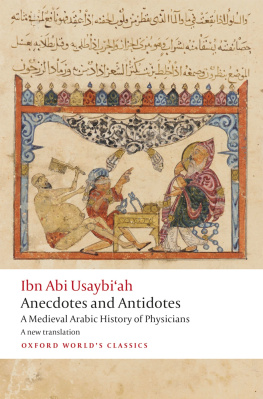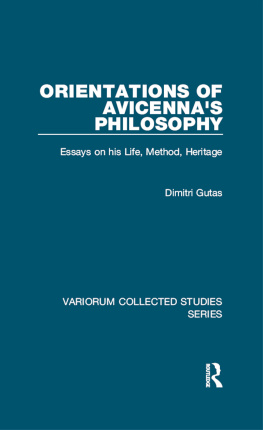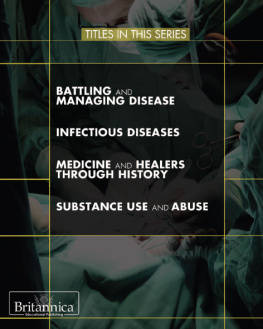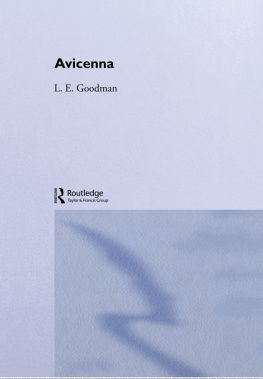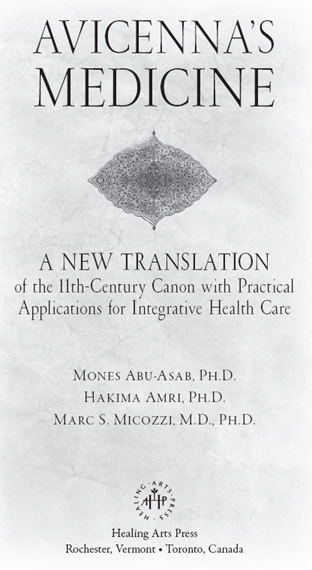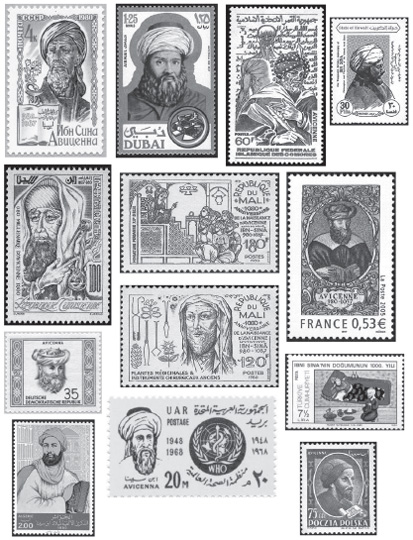Mones Abu-Asab - Avicennas Medicine: A New Translation of the 11th-Century Canon with Practical Applications for Integrative Health Care
Here you can read online Mones Abu-Asab - Avicennas Medicine: A New Translation of the 11th-Century Canon with Practical Applications for Integrative Health Care full text of the book (entire story) in english for free. Download pdf and epub, get meaning, cover and reviews about this ebook. year: 2013, publisher: Healing Arts Press, genre: Romance novel. Description of the work, (preface) as well as reviews are available. Best literature library LitArk.com created for fans of good reading and offers a wide selection of genres:
Romance novel
Science fiction
Adventure
Detective
Science
History
Home and family
Prose
Art
Politics
Computer
Non-fiction
Religion
Business
Children
Humor
Choose a favorite category and find really read worthwhile books. Enjoy immersion in the world of imagination, feel the emotions of the characters or learn something new for yourself, make an fascinating discovery.

- Book:Avicennas Medicine: A New Translation of the 11th-Century Canon with Practical Applications for Integrative Health Care
- Author:
- Publisher:Healing Arts Press
- Genre:
- Year:2013
- Rating:5 / 5
- Favourites:Add to favourites
- Your mark:
Avicennas Medicine: A New Translation of the 11th-Century Canon with Practical Applications for Integrative Health Care: summary, description and annotation
We offer to read an annotation, description, summary or preface (depends on what the author of the book "Avicennas Medicine: A New Translation of the 11th-Century Canon with Practical Applications for Integrative Health Care" wrote himself). If you haven't found the necessary information about the book — write in the comments, we will try to find it.
Presents the actual words of Avicenna translated directly from the original Arabic, removing the inaccuracies and errors of most translators
Explains current medical interpretations and ways to apply Avicennas concepts today, particularly for individualized medicine
Reveals how Avicennas understanding of the humors corresponds directly with the biomedical classes known today as proteins, lipids, and organic acids
A millennium after his life, Avicenna remains one of the most highly regarded physicians of all time. His Canon of Medicine, also known as the Qanun, is one of the most famous and influential books in the history of medicine, forming the basis for our modern understanding of human health and disease. It focused not simply on the treatment of symptoms, but on finding the cause of illness through humoral diagnosisa method still used in traditional Unani and Ayurvedic medicines in India.
Originally written in Arabic, Avicennas Canon was long ago translated into Latin, Persian, and Urdu, yet many of the inaccuracies from those first translations linger in current English translations. Translated directly from the original Arabic, this volume includes detailed commentary to explain current biomedical interpretations of Avicennas theories and ways to apply his treatments today, particularly for individualized medicine. It shows how Avicennas understanding of the humors corresponds directly with the biomedical definition of proteins, lipids, and organic acids: the nutrient building blocks of our blood and body. With this new translation of the first volume of his monumental work, Avicennas Canon becomes just as relevant today as it was 1,000 years ago.
Mones Abu-Asab: author's other books
Who wrote Avicennas Medicine: A New Translation of the 11th-Century Canon with Practical Applications for Integrative Health Care? Find out the surname, the name of the author of the book and a list of all author's works by series.

